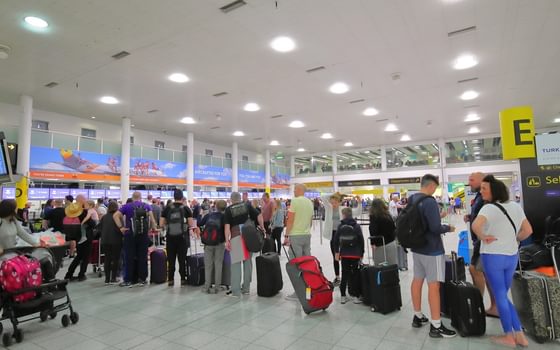We can’t keep the fire-fighting
To protect the Amazon, G7 leaders must shift political discourse and urgently reform international trade relations
30 August 2019
After weeks of accelerated deforestation and forest fires in the Amazon, and continuous public outcry, this past weekend global leaders responded. On Tuesday, the Brazilian government rejected the G7’s offer of $20 million to fight the fires, and then later, showed signs of reversing its position. Cash offers, even if mediocre, are necessary emergency responses — but they are not enough. What the Amazon and other forests need is a long-awaited massive shift in our economy and politics, so that we don’t have to keep putting out fires.
I was born and raised in Brazil, surrounded by the wonders of luscious green rainforests. For all of its natural wonders, Brazil is also full of deep social, political and economic challenges. The Amazonia gives Brazilians a great sense of pride. It is the pulsing heart of the nation, so of course it’s great to see global attention on the forest during this distressing time. But the response has not only been historically and politically flawed, it is just not enough.
The reason why Bolsonaro feels entitled in rejecting the G7’s offer is because there is a hypocrisy in it. The destruction and overexploitation of natural ecosystems like the Amazon in the name of development is not new or something of the past – it’s been led by the world’s wealthiest nations for a long time.
The destruction and overexploitation of natural ecosystems like the Amazon in the name of development is not new or something of the past
For decades, governments and corporations from the Global North have been contributing to — and benefitting from — the destruction of forests everywhere, from Indonesia to the Democratic Republic of Congo to Brazil. The growing global demand for beef, soy, palm oil and wood products is what has driven the majority of tropical deforestation. In the past years, one CEO of a large US investment company has been cashing between $500 – 800 million annually by driving projects that are causing deforestation in the Amazon region. Since the Industrial Revolution, the Global North has emitted huge amounts of greenhouse gases into the atmosphere. But despite the ‘carbon debt’ that they owe to the Global South, the UK alone increased support for fossil fuel projects overseas to almost £2 billion in 2018, an eleven-fold increase over the previous year.
And dominant economies and their mighty corporations will not give up the powerful and privileged position they have established. In 2007, the Ecuadorian President Rafael Correa made an unprecedented proposal to the wealthier nations of the world to help protect one of the most biologically diverse habitats on the planet, and home to a number of indigenous communities, from oil extraction. Ecuador asked for $3.6 billion — half the amount of the potential oil revenue they would get — for keeping the oil in Yasuni National Park in the ground. Six years later, Correa finally abandoned the agreement after it had only raised $13 million, saying: “it was not charity that we sought from the international community, but co-responsibility in the face of climate change.”
Today, it’s no wonder the G7’s offer of support for the Amazon comes without any weight, as politicians get busy fighting for media attention, while the voices of those most affected remain in the background. When heads of state in South America trying to protect the forest and indigenous rights are shut down by the leaders of powerful nations, this gives credibility to the rise of new ones more willing to ‘play by the rich nations’ rules’, the powerful neoliberal agenda: stripping back social and environmental protections and exploiting natural resources at any cost to deliver short-term GDP growth.
The UK alone increased support for fossil fuel projects overseas to almost £2 billion in 2018
The response we need now is the one that will enable the rules of this broken system to change. Bolsonaro is merely a symptom of this system. We need new solutions that are developed by different voices.
European leaders could start, not by addressing Bolsonaro’s outrageous statements, but by speaking directly to the indigenous communities in Brazil, Bolivia and elsewhere being stripped of their rights and whose home is burning. The European community should be elevating the voices of the indigenous leaders who have been fighting deforestation but are left without power in this broken system.
The Global North can use its power to halt its own harmful investment and trade patterns; use its position on the international stage and political discourse to acknowledge its historical responsibility to ecological breakdown; and put its good intentions and endless (and too often meaningless) non-binding commitments to sustainability to good use by delivering concrete actions.
The European community should be elevating the voices of the indigenous leaders who have been fighting deforestation but are left without power
Since last week’s G7 meeting, French President Macron has led calls to halt the signing of the recently agreed EU-Mercosur free trade deal, unless Bolsonaro delivers on the deal’s environmental commitments. But what EU leaders should be proposing is to reform the deal altogether. The agreement would make it cheaper for Brazilian farmers to export agricultural products, particularly beef. Cattle production is one of the main causes of deforestation in the Amazon, and Bolsonaro was elected last year with the support of the powerful agribusiness industry.
To stop deforestation as we battle with the urgency of climate breakdown, the Global North must treat all policy as climate policy. That means amongst many other things, halting finance assistance to companies that support fossil fuel extraction elsewhere whilst cutting fossil fuel subsidies at home; redesigning trade agreements — such as the EU-Mercosur free trade deal — to enhance environmental and social regulations, as well as human rights; seriously investing in nature restoration in its own territories to reverse centuries of degradation, enabling countries in the Global South to escape economic neocolonialism that has trapped them into an ever ending role of human and resource exploitation to fuel the economies of wealthier industrialised nations.
Earlier this year, the Waorani tribe in the Ecuadorian Amazon won a historic legal battle against the Ecuadorian government to stop oil drilling on their land. That is great news, but sadly a drop in the ocean. To the communities that call the Amazon forest home, its protection has been an urgent issue for decades, even centuries, with many lost battles. We now have a new dimension to its urgency – the Amazon is the world’s largest land-based carbon sink and a remaining beacon of hope for tackling climate breakdown, and the international community cannot afford to lose it. As Greta Thunberg, the teenage Swedish girl at the centre of the youth climate movement, said “[global leaders] only talk about moving forward with the same bad ideas that got us into this mess, even when the only sensible thing to do is pull the emergency brake.”
Image: Quarrie Photography (CC BY-NC-ND 2.0)






